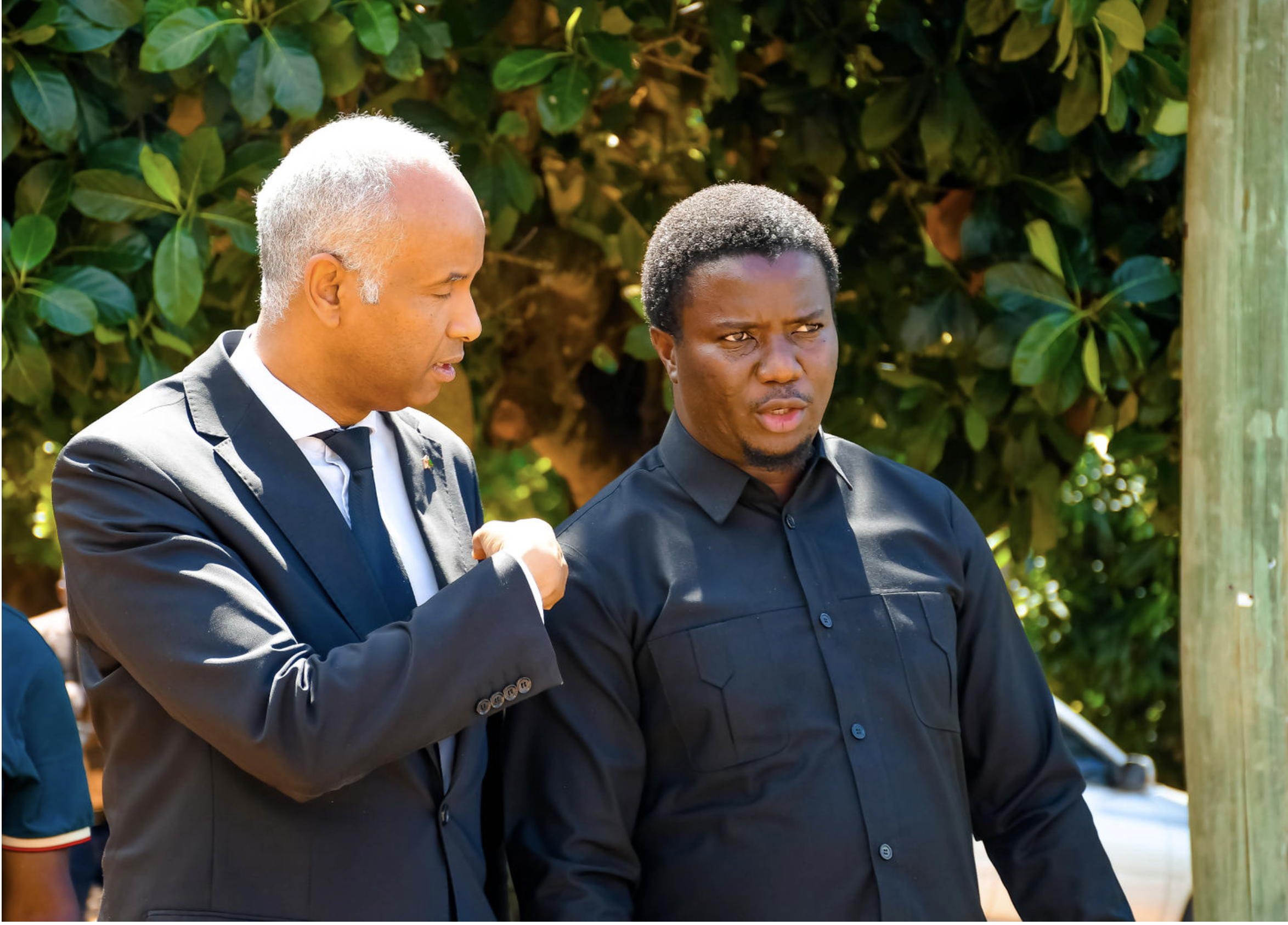Mkuranga, Pwani Region, Tanzania—The Honourable Ahmed Hussen, Minister of International Development for Canada, has launched a six-year project to promote sustainable agriculture and increase employment opportunities for youth and women in the Southern Agricultural Growth Corridor of Tanzania (SAGCOT) region. The event took place on May 15, 2024, at Koga Farm, a prominent mango farm in Kibamba Village, Mkuranga District.
Under the Government of Canada, CARE International Canada will fund the project with approximately CAD 20 million (TZS 38 billion). Hon. David Silinde (MP), Tanzania’s Deputy Minister of Agriculture, and Hon. Abubakar Kunenge, Coastal Regional Commissioner, along with local leaders and community members, warmly welcomed Minister Hussen to the farm.
Minister Hussen emphasized the importance of sustainable and inclusive development in addressing climate change. He reiterated Canada’s commitment to sustainable development goals in partnership with Tanzania. “Through this project, Canada is collaborating with Tanzania to promote an accountable response to climate change by focusing on three key areas: climate change adaptation, climate mitigation, and the transition to renewable energy,” said Minister Hussen. He showcased the mango farming initiative at Koga Farm as an example of sustainable agriculture’s potential, highlighting the prospects for high-quality, climate-resilient crops that generate income. He also encouraged local mango farmers to explore export opportunities to Canada.
Hon. David Silinde (MP), Deputy Minister of Agriculture for Tanzania, expressed gratitude to the Government of Canada for their partnership in addressing global challenges. Speaking on behalf of the Government of Tanzania, he assured full support for the project. “Your visit testifies to the robust partnership between our nations in tackling critical global challenges, including climate change and sustainable development,” said Hon. Silinde. He noted that agriculture, employing over 80% of the population, is the backbone of Tanzania’s economy. Still, climate change has significantly hampered productivity and livelihoods, entrenching many in poverty and food insecurity.
Deputy Minister Silinde acknowledged the socio-cultural barriers that impede youth and women’s engagement in agriculture, limiting their economic empowerment. Developed with CARE Tanzania, SAGCOT, and WWF, the project aims to directly address these challenges. “The primary objective of this project is to enhance the capacity of over 175,000 farmers, with a specific focus on youth and women, to adapt to climate change impacts through innovative technologies and sustainable agricultural practices,” stated Deputy Minister Silinde.
Hon. Abubakar Kunenge, Regional Commissioner of Pwani, expressed appreciation for Minister Hussen’s visit and emphasized the government’s dedication to agriculture, including initiating projects like BBT. He assured the Minister of the regional government’s commitment to overseeing and executing the government’s priorities.
Madam Fatma Riyami, Chair of The Association of Mango Growers (AMAGRO) and Managing Director of NatureRipe Kilimanjaro, the owners of Koga Farm, highlighted the vast potential of mango farming as a cornerstone of sustainable agriculture in Tanzania. “Mangoes are highly valued worldwide for their health benefits and rank closely behind oranges, bananas, and avocados,” said Madam Fatma. He mentioned that the global market size for mangoes reached USD 63.65 billion in 2023 and is projected to grow by 6.7% to USD 67.95 billion. Tanzania, as one of the top 15% of mango producers by volume, can exploit lucrative opportunities and expand markets by harvesting during major mango producers’ off-season.
The visit to Koga Farm showcased the successful cultivation of mangoes, oranges, and other citrus fruits, thriving in the region’s favorable climate and soil conditions. Koga Farm’s superior produce enjoys a reliable market in major cities such as Dar es Salaam, Morogoro, Arusha, Tanga, and Zanzibar. The delegation was informed that Tanzania ranks as the 6th largest mango producer globally; however, further investments in mango farming are needed to fully harness its export potential. Madam Fatma also emphasized the role of mango farming in climate-smart agriculture. “Climate change poses significant challenges globally. Tanzania has experienced seven El Niños from 2000 to 2024, resulting in extensive environmental and infrastructural damage. Planting trees is a major step towards mitigating climate change’s adverse effects. Scientific research indicates that one tree can remove one metric ton of carbon over its lifetime. Consequently, one hectare of 160 mango trees has the capacity to eliminate 160 metric tons of carbon.”
Ms. Tula Mloge, Principal Assistant to the CEO of SAGCOT, commended the Canada-Tanzania partnership, highlighting its commitment to fostering sustainable agricultural practices, improving farmers’ livelihoods, and empowering youth and women. By prioritizing climate change adaptation, climate mitigation, and the transition to renewable energy, the initiative paves the way for a more resilient and inclusive agricultural sector. Furthermore, the successful SAGCOT approach, as directed by President Dr. Samia Suluhu Hassan, will be replicated in other regions across the country.
The “Her Resilience, Our Planet Project” is a six-year initiative to increase the socio-economic empowerment of women and female youth in Tanzania through gender-responsive and ecosystem-sensitive agricultural practices. The project targets five districts within SAGCOT’s geographic priority clusters: Ihemi cluster (Iringa, Kilolo, Mufindi, and Wang’ing’ombe districts) and Mbarali cluster (Mbarali district).
The initiative provides an opportunity to educate farmers in various regions, including Coast Region, Morogoro, Dodoma, Singida, Shinyanga, Simiyu, Geita, Mwanza, and Kigoma. With support from CARE and SAGCOT stakeholders, the project seeks to attract increased investment in fruit crop production in these areas, promising benefits for farmers and boosting national income.
The launch of this project marks a significant stride towards achieving sustainable agriculture and fostering the economic empowerment of Tanzania’s youth and women.
End
